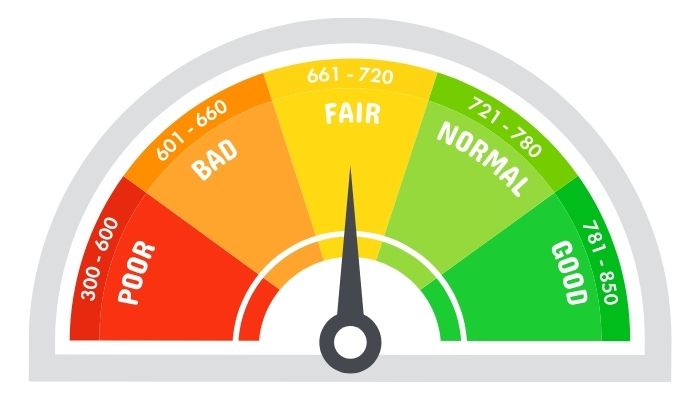Student Loans
Great Lakes Credit Union has everything you need to help manage your money and plan for the future.

Money SmartsOctober 24, 2023
Credit is a crucial component of your financial life and a huge contributor to your overall financial fitness. Think of credit as your financial reputation, or the scorecard that tells lenders how trustworthy you are when it comes to repaying borrowed funds. A good credit score can open doors to better lending terms, while a poor credit score can limit your financial opportunities.
Key Takeaways:
What is a credit score?
A credit score is a three-digit number that lenders use to predict how likely you are to pay back a loan, based on your credit report. Lenders use this score to determine if they will offer you a mortgage, a car loan, or other credit products like credit cards. In some cases, your credit score could also be referenced in tenant screenings or an employment screening process. Credit scores typically range from 300 to 850 and are categorized from poor to excellent.

Understanding the Factors of a Credit Score
Your payment history – how often you’ve paid your loans on time – is arguably the most critical factor in determining your credit score. It accounts for about 35% of your FICO score. Always strive to pay your bills on time, whether it's credit card payments, loans, or other debts. Even a single overdue payment can dent your credit score, so set up reminders and automatic payments to avoid this pitfall.
Credit utilization measures how much of your available credit you're using. Keeping your credit card balances low is essential for a healthy credit score. Aim to use no more than 30% of your total revolving credit limit. High credit utilization can signal financial stress to lenders and negatively impact your credit score. Reducing your balances and paying off high-interest debts can help improve your credit utilization.
The length of your credit history makes up around 15% of your credit score. The longer you've responsibly managed credit, the better it is for your credit score. Avoid closing old credit card accounts, as this can shorten your credit history. Instead, keep those accounts open, even if you're not using them regularly. Building a long credit history takes time, so start early and be patient.
Credit scoring models also consider the various types of credit accounts you have. Lenders like to see a mix of credit types, including credit cards, installment loans (like auto loans or mortgages), and retail accounts. Diversifying your credit portfolio can positively impact your credit score.
Applying for new credit can trigger what's known as a "hard inquiry" on your credit report. Multiple inquiries in a short period can raise red flags for lenders and lower your credit score. Be cautious when seeking new credit. Only apply when you genuinely need it, and do your research to find the best terms.
Actionable Steps to Building Good Credit
One of the most important steps in building good credit is monitoring your credit reports. You're entitled to one free credit report from each of the major credit bureaus (Equifax, Experian, and TransUnion) annually. Take advantage of this and review your reports for errors or discrepancies. There are also a number of free and paid credit monitoring services available that provide ongoing access to your credit information.
To maintain a spotless payment history, set up payment reminders for your bills. Many banks and credit unions offer automatic payment options, allowing you to schedule recurring payments for your credit card bills and loans. This reduces the risk of overdue payments and protects your credit score.
A well-structured budget can help you manage your finances and reduce the likelihood of overspending, which could lead to high credit card balances. Budgeting enables you to allocate funds wisely, pay down debts, and build savings, ultimately contributing to a healthier credit profile.
If you have high-interest debts, consider creating a debt repayment strategy. This may involve focusing on paying off debts with the highest interest rates first or consolidating debts into a lower-interest loan. Reducing your outstanding debts will improve your credit utilization and boost your credit score.
Building and maintaining good credit is a fundamental aspect of your overall financial fitness. Your credit score plays a pivotal role in your ability to get mortgages, auto loans, credit cards, and more. By following the actionable steps outlined in this guide and being proactive in managing your credit, you can set yourself on a path to financial success and build a solid financial future.